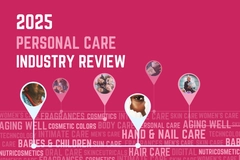ELF Beauty sees economic benefits of gender-diverse boardrooms but warns of slowing momentum

ELF Beauty’s “Not-So-White Paper” suggests having women on boards correlates to better price-to-earnings ratios. Boards with three or more women and minorities have a lower likelihood of large-scale discrimination lawsuits.
However, the research points out that progress in diversity on boards is hitting a plateau, particularly for women. The number of women on boards has not changed since 2020, at 27%.
The beauty brand and North Carolina Agricultural and Technical State University (NC A&T) underscore the role of board diversity in the success of US publicly traded companies.
Above-average gender diversity on corporate boards of S&P 500 companies saw a 15% return on equity and a 50% reduction in earnings risk measured by earnings per share over one year.
“These benefits are not automatic, and they are most likely to occur when at least three members of underrepresented communities are on a Board of Directors. This should make sense to board members from their lived experience, as one voice can put an issue on the radar and a second voice can validate it, but it often takes at least three to make a quorum that can change policy,” details the report.
Diversity success
ELF Beauty believes its success in delivering 22 consecutive quarters of net sales growth is partly due to its diverse board. It says it is the only publicly traded company in the US out of approximately 4,100 with a board of directors that is 78% women and 44% diverse.
“It’s not about a quota,” says the cosmetics brand. ELF believes increased diversity will benefit businesses with a wide range of perspectives and experiences.
 Tarang Amin, chairman and CEO at ELF Beauty, believes diversity is critical for corporate success:
Tarang Amin, chairman and CEO at ELF Beauty, believes diversity is critical for corporate success:
“Today, more than ever, diversity is essential for strong corporate governance. The research draws real-world correlations that diverse boards are better equipped to navigate complex business environments, foster innovation and deliver value to shareholders.”
Fifty-eight percent of board seats are held by white men, with 78% being white and 73% being male. Seventy-two percent of seats held by women are held by white women, with less than 10% of board members in the US being Black.
The “Not-So-White Paper’s” goal is to help double the rate at which women and people of color are added to the boards of directors of U.S.-based, publicly traded companies by 2027.
The brand wants to “democratize access across all pillars of business, including the highest seats of power.” ELF Beauty aims to “close the gap between the board, C-suite and the community.”
Education for change
The partnership with NC A&T is part of ELF Beauty’s Change the Board Game initiative, which aims to increase diverse representation in the boardroom by providing research, advocacy and tools to corporate leaders.
NC A&T is the largest historically Black college or university with an annual economic impact of US$2.4 billion and external research funding of over US$102 million in fiscal year 2024. Seventy-three percent of seats in boardrooms are held by men.
Seventy-three percent of seats in boardrooms are held by men.
The university works to be a “driving force for social justice, economic growth and educational excellence.” Its Hairston College of Health and Human Sciences and Deese College of Business and Economics contributed to this report.
“The findings underscore that a Board of Directors reflecting a wide range of perspectives, experiences and backgrounds is a critical factor for achieving competitive advantage and sustainable growth,” concludes Elimelda Moige Ongeri, Hairston College Dean.
“More importantly, the goals of the Change the Board Game project align well with NC A&T’s legacy of being at the forefront of advancing social justice and equity. NC A&T is proud to engage multidisciplinary researchers on this project, as this provides a more comprehensive analysis and contextualizes the data.”
ELF is sponsoring board preparation training for 20 corporate director candidates through the National Association of Corporate Directors (NACD) Accelerate program and will sponsor a second cohort of 20 candidates early next year.
The beauty brand also sponsors the NACD Center for Inclusive Governance, which focuses on creating diverse and inclusive boards by providing education and peer-to-peer dialogue.












